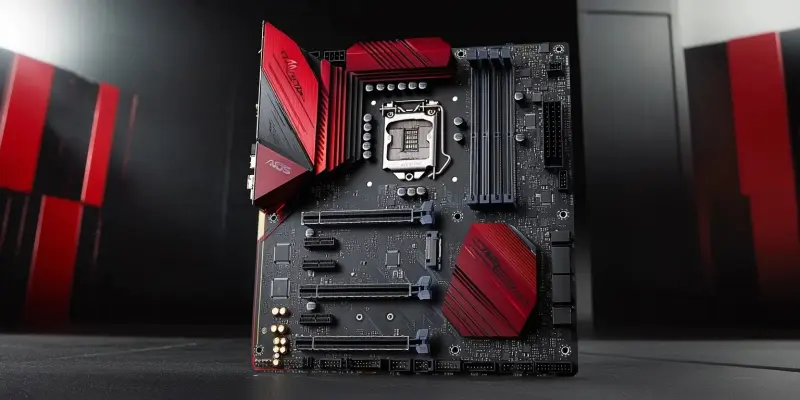The excitement around the latest lineup of ASUS motherboards set to launch in 2025, featuring AMD B850, B840, and Intel B860 chipset models, is palpable within the tech community. With substantial information gleaned from UK retailer listings, consumers are now able to anticipate product pricing, release dates, and performance features well in advance. This anticipated reveal has sparked discussions about the value these motherboards might bring to the market, particularly focusing on varied pricing strategies and compatibility for different performance needs.
The most notable aspect of the upcoming ASUS motherboard lineup is the range of models catering to both budget-conscious consumers and mid-range enthusiasts, offering plenty of choices. For example, the high-end ROG Strix B850-F Gaming WiFi motherboard is listed at £369.99 ($465 USD), signifying a robust performance and feature set aimed at demanding users. On the other end of the spectrum lies the Prime B860M-K, a budget-friendly option priced at £189.99 ($239 USD), ensuring affordability without compromising essential functionalities. Such a diverse portfolio aims to strike a balance between affordability and advanced capabilities, making these motherboards accessible to a broader audience.
Anticipated Release Dates and Pricing Strategies
Integral to understanding the value of these motherboards is recognizing the staggered release dates and strategic pricing approach deployed by ASUS. Intel’s B860 motherboards are set to make their debut on January 13th, 2025, just a week after the AMD B850 and B840 chipsets are unveiled at CES on January 6th. This coordinated release schedule across different platforms is expected to stimulate market interest and provide buyers with synchronized options from various vendors. This timing ensures that participants in the tech realm can weigh their hardware investments thoughtfully according to emerging processor lines.
From a cost perspective, the pricing model reveals ASUS’s intent to dominate both the budget and mid-range sectors. Entry-level models start around $200, fulfilling the economic needs of price-sensitive customers, while ensuring higher-tier models—like the ROG Strix series—meet the demands of users requiring advanced performance features. For example, listings by known leaker @momomo_us highlighted that without the UK’s 20% VAT, some entry-level motherboards such as the ASUS Prime B860M-K present an even more compelling value proposition by possibly dropping below the $200 mark. This pricing structure indicates a keen awareness of market dynamics and customer expectations in 2025.
Performance and Market Impact
The tech community is buzzing with excitement over the upcoming 2025 ASUS motherboards, showcasing AMD B850, B840, and Intel B860 chipsets. Thanks to details leaked by UK retailers, consumers can now look forward to learning about the pricing, release dates, and performance features of these new motherboards well in advance. This anticipation has led to lively discussions about what value these motherboards will bring to the market, especially in terms of pricing strategies and compatibility with various performance needs.
One of the standout features of the new ASUS motherboard range is its diversity, addressing both budget-conscious buyers and mid-range enthusiasts. For instance, the high-end ROG Strix B850-F Gaming WiFi motherboard, priced at £369.99 ($465 USD), is designed for demanding users with its impressive performance and features. At the other end, the budget-friendly Prime B860M-K is listed at £189.99 ($239 USD), making it an affordable choice without sacrificing essential functionalities. This diverse lineup is aimed at balancing affordability with advanced capabilities, ensuring that a wide range of consumers can find a suitable motherboard for their needs.

